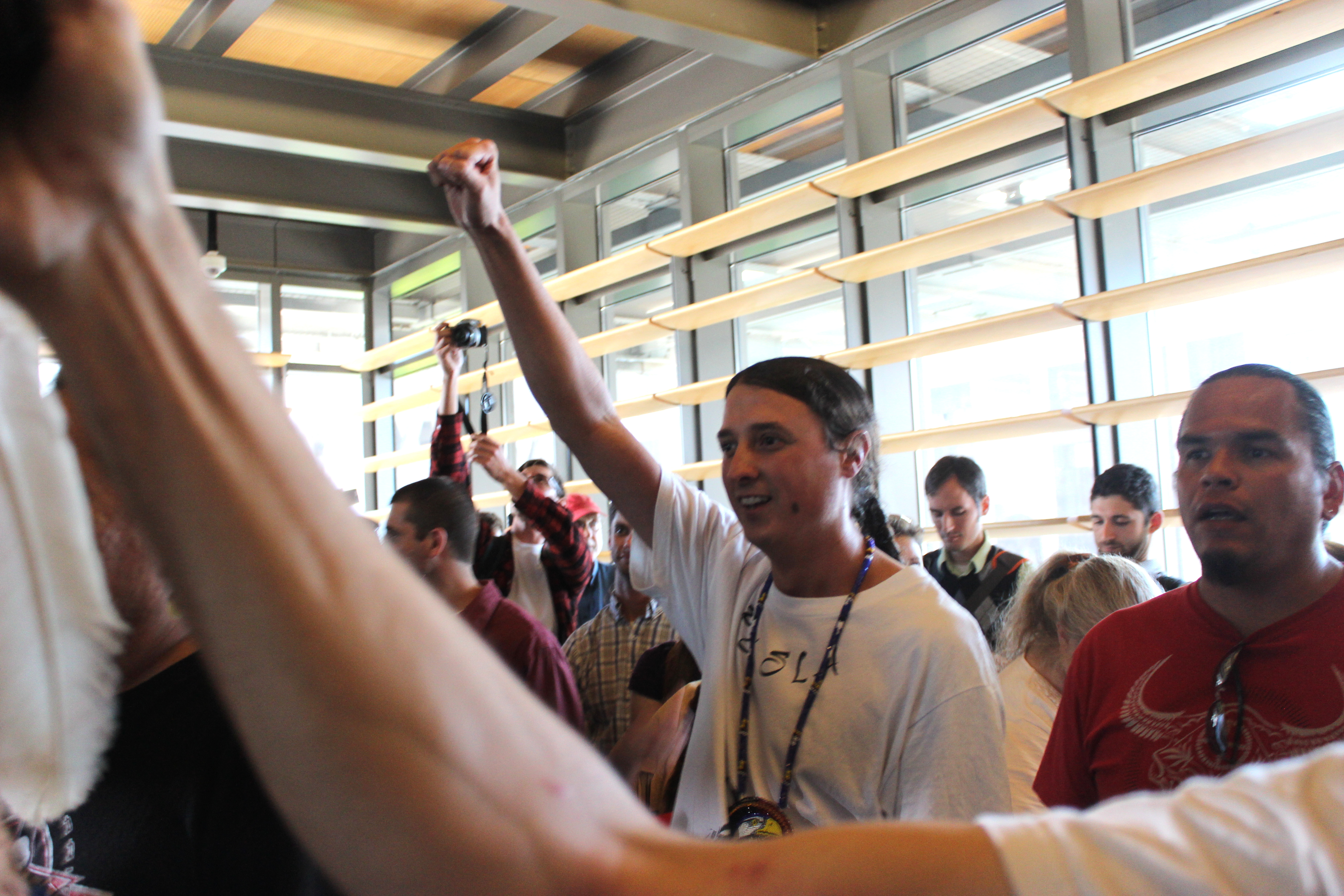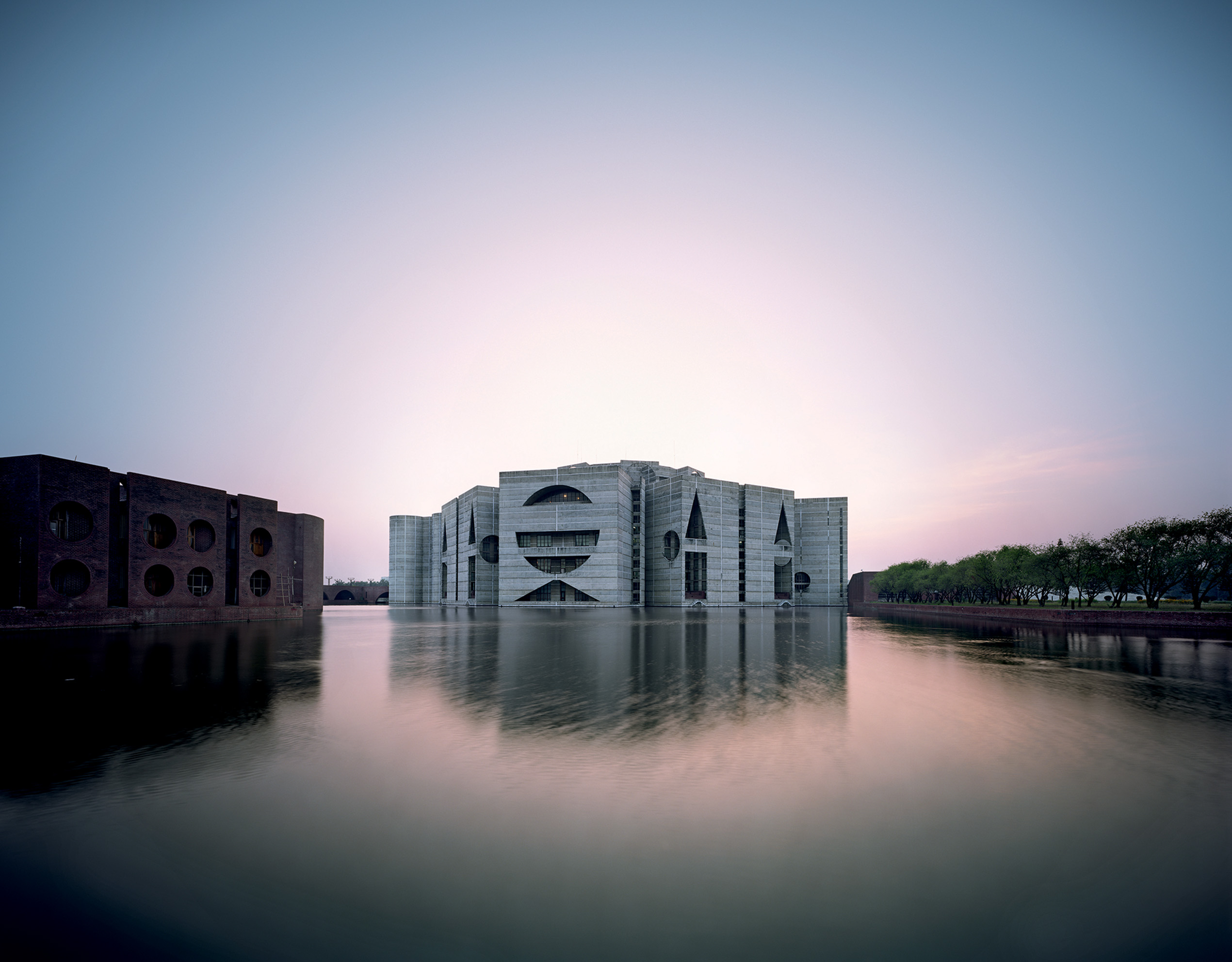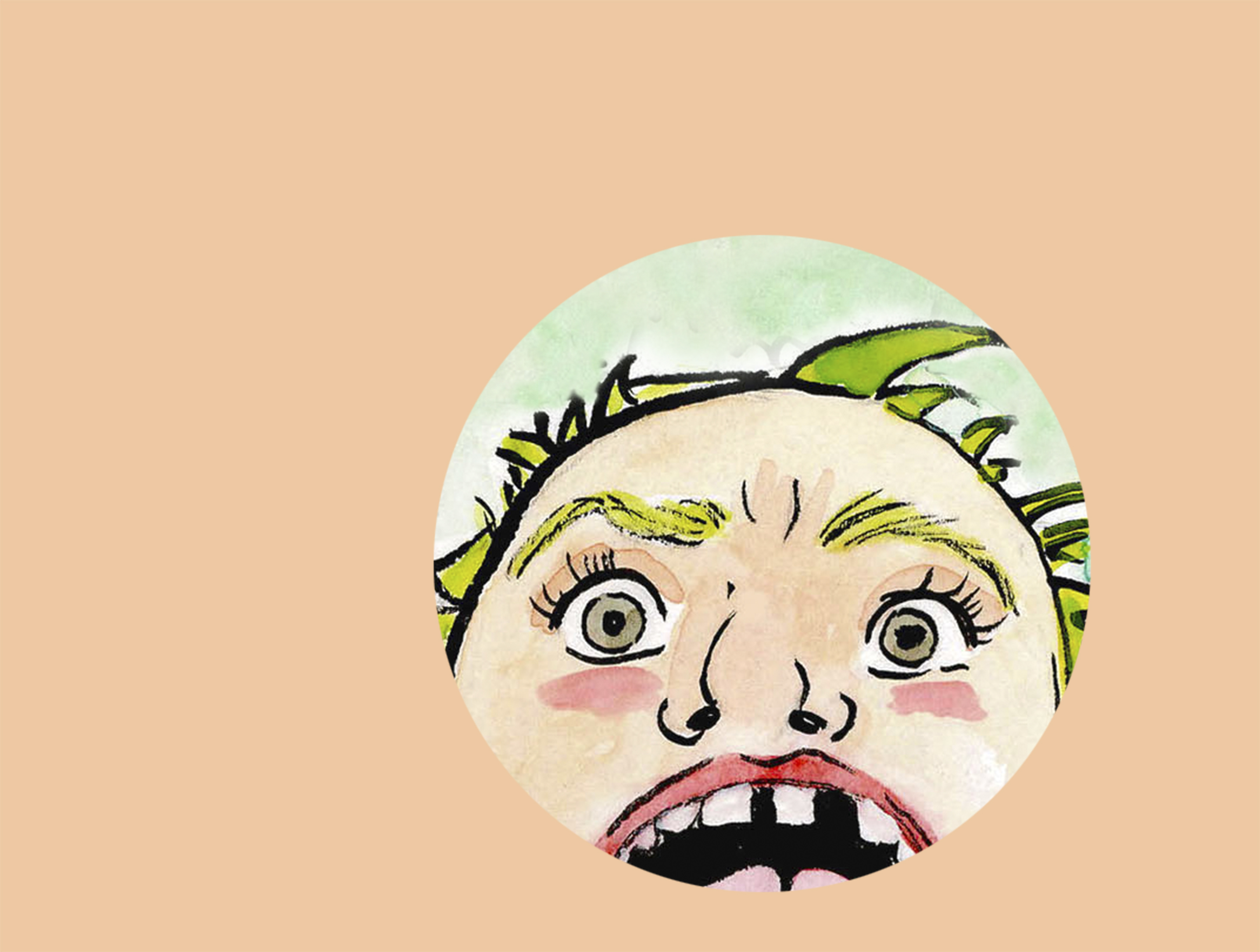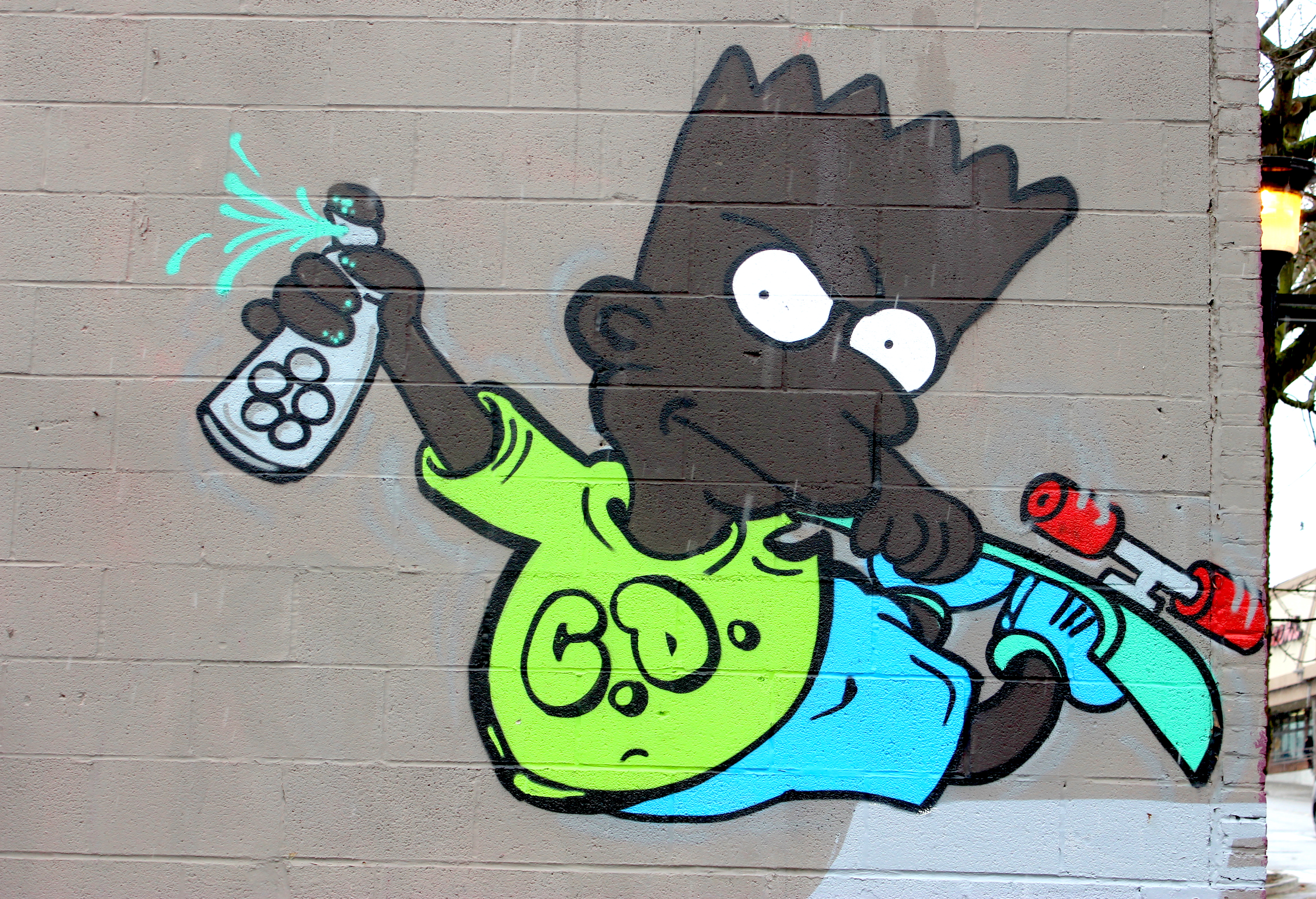After a month long delay, a heated committee hearing full of Italian Americans, and a leapfrog vote from the Seattle School Board, Seattle City Council unanimously voted to replace Columbus Day with Indigenous Peoples’ Day this afternoon. The packed council chambers erupted with cheers, the clattering of hand drums, and traditional Native song as soon as the vote came down.
“It feels amazing,” Matt Remle, the author of the Indigenous Peoples’ Day resolution, managed to tell me before a smiling swarm of community members rushed to hug and thank him for his work.
The day did not come without opposition though—members of the vocal Seattle Fedele-Lodge of the Order of the Sons of Italy in America came to offer their final grievances before the decision. While they voiced support for Indigenous Peoples’ Day, they claimed that making it the same day as Columbus Day robbed them of their own cultural holiday. A small contigent wearing lots of green, red and white waved tiny Italian flags throughout the session.
“I’m the third Italian American councilmember on the Seattle City Council in one-hundred years,” councilmember Nick Licata responded to the Italian contingent’s dissent. “We are all citizens in a democracy, we are all here to work with each other, and by making this Indigenous People’s Day, we are adding something, we are not taking something away. We can both recognize our strengths.”
Bruce Harrell, one of the resolution’s co-sponsors, finally got his chance to “milk this out a little bit,” (as he put it at the resolution’s initial council hearing on Sept. 2) by delivering a stirring speech in front of an array of television cameras.
“We are not reveling in the pain of our past, but rejoicing in the celebration of a triumph—the voice of the indigenous people who are saying ‘we are still here. We have been here hundreds of years before you, and will be here hundreds of years after you,’” Harrell said to cheers. “This is what makes Seattle so special, in all honesty—that we are bold enough to admit the shortcomings of our history in order to realize the hopes of our dreams.”
Resolution co-sponsor, councilmember Kshama Sawant, donned a shirt with a crossed-out portrait of Columbus as she delivered a speech that more pointedly took on the explorer’s history.
“This resolution is about more than a name change,” Sawant said. “It’s about teaching our children and ourselves to take a stand against racism and discrimination.
“[Columbus] did not embark on a simple voyage of exploration—it was always intended as a voyage of conquest and ultimately colonization. Columbus indicts himself in his journal as one of the most prolific slave traders in human history, buying and selling more than 5000 indigenous people, and helping establish a brutal system of forced labor. Just decades after Columbus’ arrival, the indigenous population had been reduced by as much as 90 percent. This city should not honor a man who played a pivotal role in the worst genocide the world has ever known.
“Transforming this day into a celebration of indigenous culture and social justice is not merely educational in nature—it also allows us to make a connection between this painful history and the ongoing marginalization and discrimination and poverty that indigenous communities face to this day.”
The session ended poignantly with councilmember Sally Clark making good on a “homework” assignment that an indigenous man had issued to the council at the resolution’s last committee hearing: to learn a word in the native Coast Salish language of Lushootseed.
“I don’t know if I got the pronunciation right,” she said after attempting to say a Lushootseed word, “but it should mean thank you.”








